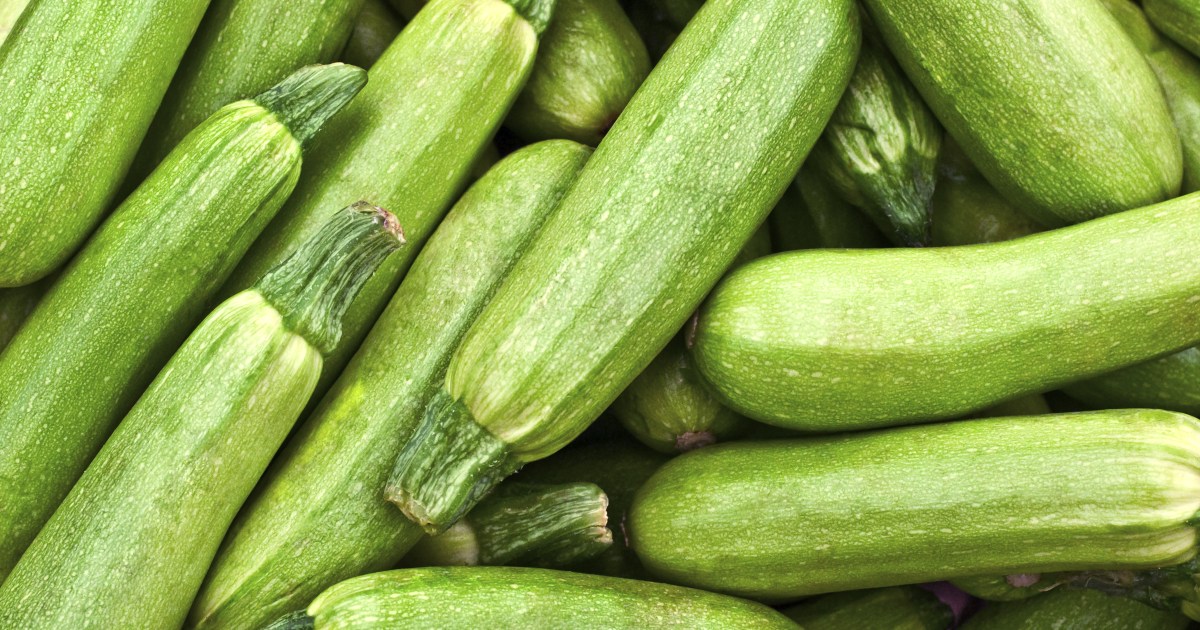Zucchini - also known as Quraia - is a low-calorie vegetable, which is included in many dishes in the Arab world, and it has many amazing benefits, so what are they?
Many zucchini are prepared from the zucchini, its king may be stuffed with zucchini, where the zucchini is drilled and pulp removed, then stuffed with rice and meat and then cooked. There are also dishes prepared from zucchini, zucchini soup, marinated zucchini and zucchini salad with yogurt, as well as zucchini and zucchini gratin with cheese and omelette zucchini, not to mention fried zucchini and zucchini pancakes.
Also among the famous dishes are the zucchini or the stuffed sheikh, in which zucchini is also dug and pulp removed, then stuffed with meat, then fried.
As for the zucchini pulp, "zucchini pits", some like to be fried with onions, and eaten with bread. As eggs may be added to it, the zucchini pits and eggs are fried together, and eaten with bread, next to it olives and pickles.
We start with nutritional information for zucchini, as one cup of fresh cut zucchini (weighing 124 grams) contains the following:
- 20 calories.
- 1.5 grams of protein.
- Dietary fiber: 1.4 g.
- Vitamin A: It contains 5% of the body’s daily value, based on a 2,000-calorie diet.
- Vitamin C: Contains 35% of the body's recommended daily value.
- Vitamin K: Contains 7% of the body's recommended daily value.
- Vitamin B1 (thiamine): 4% of the body's recommended daily value.
- Vitamin B2 riboflavin: 10% of the RDA.
- Vitamin B6: 14% of the RDA for the body.
- Folate: 9% of the body's recommended daily value.
- Quantities of manganese, magnesium, phosphorous and potassium.
We confirm here that zucchini is not a cure for any disease, and to find out more about whether it might benefit a specific health condition, consult a physician.
Here are some of the benefits of zucchini:
Animal studies indicate that zucchini extract may help kill or limit the growth of some cancer cells.
- Helping to enhance eyesight and the immune system, because it contains vitamin A.
Zucchini is rich in antioxidants, which are useful plant compounds that help protect the body from damage caused by free radicals, which are chemicals that are produced in the body and play a role in aging and cancer.
Antioxidants found in zucchini are carotenoids, which are beneficial for eye, skin and heart health, and may provide some protection from certain types of cancer, such as prostate cancer.
- Prevention of constipation, zucchini contains dietary fiber, which increases the size of stool and facilitates its transmission in the intestine, and in this also helps squash contain a lot of water that makes stool soft and thus easy to pass and reduces the risk of constipation, and thus limits the formation of "rumen".
Zucchini may help reduce blood sugar levels in people with type 2 diabetes, because they are low in carbohydrates and rich in dietary fiber.
Good for the heart, as a result of containing dietary fiber, as according to studies, the risk of heart disease in people who eat more fiber is less.
Pectin, one of the nutritional fibers in zucchini, is believed to be particularly effective in lowering cholesterol levels.
Zucchini is rich in water, fiber and low-calorie, which helps reduce hunger and a sense of satiety, and thus reduce caloric intake, and help your efforts to reduce weight.
How to eat zucchini in a healthy way?
- Try slice zucchini and eat it raw.
- It can be cooked with soup, and add a little bit of oil or without oil at all.
- When preparing stuffed zucchini, reduce the amount of oil, and stuff the zucchini with less rice and meat.
- Try to avoid fried zucchini, whether fried alone or feared zucchini, because it becomes rich in calories, so one cup of fried zucchini contains about 300 calories, compared to a raw cut cup containing 20 calories, that is 15 times more.

